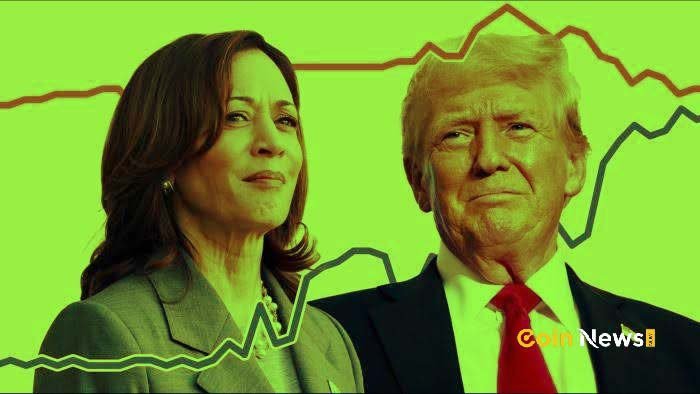Tight Race on Polymarket
 Kamala Harris = 49% (tie) Donald Trump vs. It is the biggest pool of money for a single event in virtual tie, with more than $541 million on stake. It comes as Harris rolled out a strategic move in her selection of the Minnesota governor, Tim Walz, as running mate to contrast with what many had expected from her — Pennsylvania Governor Josh Shapiro.
Kamala Harris = 49% (tie) Donald Trump vs. It is the biggest pool of money for a single event in virtual tie, with more than $541 million on stake. It comes as Harris rolled out a strategic move in her selection of the Minnesota governor, Tim Walz, as running mate to contrast with what many had expected from her — Pennsylvania Governor Josh Shapiro.
Michigan is the site of a heated battle between both Harris and Walz, as well as among Trump, his running mate, J.D. Vance from Ohio, with Michigan emerging a key state in general election campaigns to come.
Changing Odds & Market Trends
Harris has seen her odds rise steadily since Biden left the race on July 21. At the start, Harris had a nominal chance of 30%, on Trump’s part, he was quite ahead with over 64%. This is Biden, who just recently recovered from COVID-19 and whispers about his withdrawal led to odds of only 7%. Political science is the second-most significant change on Polymarket to date, and reveals how much these prediction markets —viewed as one signal of market sentiment and probabilities based on standard public opinion polls or bets by offshore books—can move. Creating a tech-savvy, crypto-centric user base to use the platform via Polygon on Ethereum’s native Layer 2 solution.
The platform quickly updates its odds after a major event like that. Among the latest episodes was one in which Twitter immediately responded to an attack on Trump. Meanwhile, the surprise of Walz over Shapiro for a Harris endorsement goes to show that even prediction markets can get it wrong sometimes. There has been a major pick up in foot traffic for Polymarket thanks to the fervor over high-profile misinformation (and, because of that, less accurate), U.S. forestallable races.
With just this last recording $343 million in July, the company surpassed a billion dollars of monthly trading volume for the first time. This is a sharp contrast to June and May 2024, when $111 million was the total amount deposited into political betting markets.
Policy and Ethical Arguments
Although Polymarket has quickly attracted a high trading volume, it is in fact taking longer for the platform to begin generating revenue as expected. In addition to that, the rise in election betting offered fuel for large ethical and regulatory debates. A bipartisan group of five senators and three house members — including top-elected figures like Sens. Jeff Merkley, Richard Blumenthal (D-CT) and Elizabeth Warren (D-MA) — are asking for 2024 presidential election betting to be banned entirely.
They cited the possibility of wealthy wagers being used to affect election results, potentially undermining faith in democracy, by writing a letter about their apprehensions to Rostin Behnam, Chair of the CFTC.
If elections turn into opportunities for profit, the integrity of an electoral system is damaged, say lawmakers. Critics stress that by betting on politics, motivations can change from true political beliefs and actions to fiduciary considerations, undermining key aspects of democracy.
The worry is that the gamification of U.S. elections by Polymarket and other betting markets threatens to hollow out democratic participation and decision-making itself. The ongoing debate shows just how much the influence of finance and technology on elections has transformed, for better or worse, our political horizon. It is time to ask whether future predictions as likely winners is going to be good or bad news for democracy.












